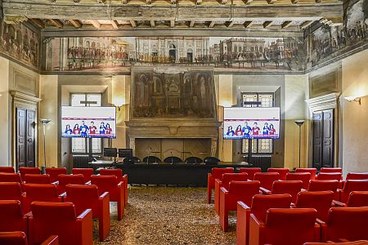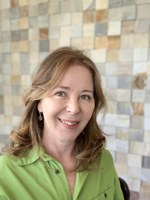Challenges of global climate change: possible paths through shared decisions
On climate change, when unity is strength

-
Date: 08 OCTOBER 2024 from 17:30 to 19:00
-
Event location: Sala Rossa, Palazzo Marchesini, Via Marsala, 26 - Bologna - In presence and online event
-
Type: Lectures
Tackling global climate change requires the broad involvement and commitment of different sectors of society: from specialist technical knowledge to the daily actions of citizens who also do their part. However, the big challenge is to level the conversation so that public policies are implemented to be adopted by the citizen in their particular unit, so that the sum of the actions makes a difference. And surgical action actions are also chosen, resulting from technical knowledge and resulting in specific interventions that generate a radiating effect of results. Policies and projects negotiated and understood by different sectors of society. For this process to happen, Geodesign proposes that the conversation be qualified, through the presentation of goals and assumptions, so that it works based on best practice references. Geodesign is a method initially presented by researchers such as Ervin (2011), Miller (2012), Steinitz (2012), Dangermond (2010), Batty (2013), Fisher (2017), who applied shared planning procedures with the support of geospatial technologies. Given the knowledge about a case study, itineraries were then proposed to collectively build alternative futures for the areas, always analyzing the impacts on decisions, and verifying the goals to be achieved. Planning happens “with” and “for” geography, discussing “what”, where”, “when”, “how much” and “how” to transform the territory. The lecture will be totally illustrated by case studies developed.
DO YOU WANT TO ATTEND THIS lecture?
-
In presence - Book your seat
Book your seat within October 8, 12 p.m. The places will be assigned on “first come first served” basis.
Please note that the building is not equipped so as to facilitate access for wheelchair users or people with mobility issues.
PhD students and researchers who are interested may request an attendance certificate by writing to segreteria.isa@unibo.it specifying their birthplace and date of birth.
The delivery of the attendance certificate requires the attendance of at least 70% of the lecture.
